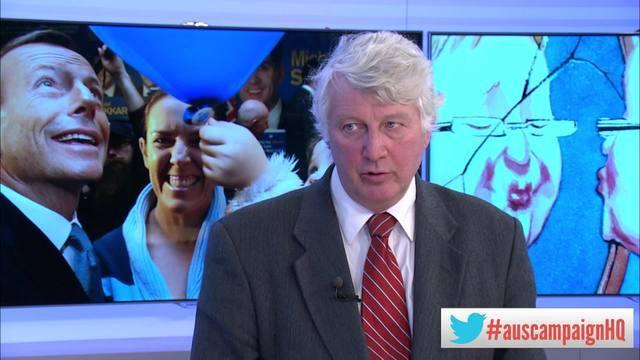MAN hugs are acceptable in north Queensland, apparently, provided you keep your hat on. But some men have been leaving their Akubras on the table, if you get the drift, even in the seat of Kennedy, which means that if Bob Katter is a man of his word, he will have to walk backwards from Bourke as he promised.
Katter told John Laws once that were no gays in his electorate, and yet we know from the 2011 census that there are 82 homosexual men and 100 lesbians lurking between Boulia and the Palmer River. And these are only the ones we know about, because the census does not pry into gaiety in general, just couples who cohabit in a gay kind of way.
A number of columnists in the Fairfax camp have taken Katter to task for his homo-scepticism but, as Katter might say, these are city folk who would not have a bloody clue. Ninety-one same-sex couples may sound a lot if you're rubbing up against them at a rave party in Sydney's Newtown, but in Kennedy that a represents a pair of cohabiting homosexuals for every 6250sq km.
It comes as no surprise to learn that same-sex couples are unequally distributed in Australia or that people with similar lifestyles gravitate towards certain suburbs. Prejudice, one hopes, is slowly disappearing, but minorities that have experienced intolerance or violence naturally seek safety in numbers. In Sydney's rainbow suburbs, such as Darlinghurst, Newtown or Surry Hills, as many as one in four couples are same-sex. Yet insofar as we can take same-sex relationships as an indicator of broader social attitudes, the geographical divides are stark. Chris Bowen's electoral office in Fairfield is about 35km to the west of Tanya Plibersek's in Sydney. Bowen's consitituency is the straightest in the country, with 614 mixed couples to each same-sex one; in Plibersek's seat the ratio is 10 to one.
There is no need to commission Newspoll to guess which way voters might lean in each of these places on the question of gay marriage, and therefore why Plibersek favours changing the Marriage Act but Bowen does not
Nor is it necessary to throw around accusations of homophobia to account for the surprising amount of resistance to what some call marriage equality. It would be impertinent to claim that every Campbelltown truck driver is homophobic, but for all his travels he would be unlikely to encounter many cohabiting gays in an average day.
The census tells us what we know instinctively but might have thought improper to say. Cohabiting gay men are most likely to work in retail, advertising, nursing or hairdressing. They are least likely to be truck drivers, metal fitters or motor mechanics.
So perhaps Tony Abbott is right to say that gay marriage is not a top-order issue for most Australians. And for Kevin Rudd to have outed himself so conspicuously as a convert to gay marriage advocacy may be a brave act of conscience, but it is lousy politics.
If the election hinged on the results in the electorates of Sydney, Grayndler (straight-to-gay couple ratio 19:1), Melbourne (25:1) or Melbourne Ports (31:1), Rudd might be on to a winner.
But Labor needs to win seats such as Longman (208:1), Banks (201:1) and Braddon (386:1) if it is to have any hope of holding on to power. Of the seats that are likely to be in play, only Brisbane (37:1) Kingsford Smith (77:1) and Macquarie (also 77:1) have high same-sex quotas. In the suburbs Labor needs to capture or retain in Victoria, NSW and Queensland, not only are same-sex quotas below the national average, but there are other factors that suggest strong resistance to gay marriage, as opposed to mere indifference.
One is religion. About 20 per cent of Australians said they had no religion at the 2011 census. And like same-sex couples they are unevenly distributed. God may be dead in Fitzroy or Newtown, but in Moonee Ponds or Seven Hills he (or she) is very much alive. Almost half of those in same-sex relationships say they have no religion, but the godless vote is not the one Labor needs to chase. Nine of the ten most religious seats are in western Sydney and five of them were considered vulnerable under Julia Gillard, though less so under Rudd. They are McMahon (87 per cent religious), Werriwa (84 per cent), Chifley (83 per cent), Greenway (83 per cent) and Watson (81 per cent).
Western Sydney's multiculturalism also serves to make it rainbow-resistant. In Tony Burke's seat of Watson, 20 per cent of the population is Muslim, a faith not known for its acceptance of alternative lifestyles. The same is true for almost all non-Western immigrant communities where the value of individual liberty is subservient to loyalty to family and tradition.
It is little wonder that every Labor member in western Sydney except Jason Clare opposed changing the Marriage Act last September when a vote was counted on the floor of the house. Julie Owens, MP for Parramatta, a member of Labor's Left, agonised openly before voting no to a private member's bill last year. "Personally, I support same-sex marriage," she told the Parramatta Advertiser. Voting against the bill, she said, was "one of the most awful things I've done in my political life".
Tolerance is frequently cited as an argument for marriage equality, yet forbearance cuts both ways. Gay marriage supporters find it hard to temper their moral zeal in the face of opposition or to allow that fair-minded people might come to different conclusions than their own. Kerryn Phelps said last year that MPs who supported same-sex marriage but voted against it were "gutless" and "playing with people's lives." Another way to look at it is that Owens and others in the same situation have been forced to make a hard choice between displaying their personal virtue and satisfying the principles of representative democracy.



